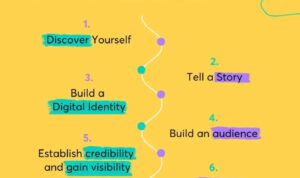Career Growth Strategies sets the stage for this enthralling narrative, offering readers a glimpse into a story that is rich in detail with american high school hip style and brimming with originality from the outset.
Embark on a journey through the world of career growth strategies, where success is not just a destination but a way of life.
Importance of Career Growth Strategies
Having a clear plan for career growth is essential for professionals looking to advance in their careers and achieve their goals. By setting specific objectives and outlining steps to reach them, individuals can stay motivated, focused, and on track towards success.
Impact on Professional Success, Career Growth Strategies
- Effective career growth strategies can lead to promotions, salary increases, and opportunities for advancement within a company.
- By continuously improving skills, seeking out new challenges, and networking with industry professionals, individuals can enhance their professional reputation and credibility.
- Setting and achieving career goals can boost confidence, job satisfaction, and overall job performance.
Correlation with Job Satisfaction
- Employees who actively pursue career growth opportunities are more likely to feel engaged, motivated, and fulfilled in their roles.
- Having a clear path for career development can reduce feelings of stagnation, boredom, and disengagement at work.
- Job satisfaction often increases when individuals feel challenged, valued, and supported in their professional growth.
Types of Career Growth Strategies

When it comes to advancing in your career, there are various strategies that individuals can utilize to reach their goals. Let’s explore the different types of career growth strategies and how they can impact your professional development.
Short-Term vs. Long-Term Career Growth Strategies
Short-term and long-term career growth strategies play a crucial role in shaping your professional journey. Here’s a comparison between the two:
- Short-term strategies focus on immediate career goals and objectives, such as acquiring new skills, networking, and taking on challenging projects.
- Long-term strategies involve planning for the future, setting career milestones, pursuing advanced education, and strategic career moves.
Real-Life Examples of Successful Career Growth Strategies
Let’s take a look at some real-life examples of professionals who have implemented successful career growth strategies:
One successful strategy is continuous learning and upskilling. By staying updated with industry trends and acquiring new skills, professionals like Mark Zuckerberg have been able to adapt and thrive in their careers.
Another effective strategy is building a strong professional network. Successful professionals like Sheryl Sandberg have leveraged their networks to open up new opportunities and advance in their careers.
Developing Personalized Career Growth Plans

Creating a personalized career growth plan is essential for individuals to progress in their professional lives. By assessing their current career status and setting growth goals, individuals can take control of their future and work towards achieving their aspirations.
Assessing Current Career Status and Setting Growth Goals
To develop a personalized career growth plan, individuals should follow these steps:
- Conduct a self-assessment: Reflect on your skills, strengths, weaknesses, and interests to determine where you currently stand in your career.
- Evaluate your current job role: Assess whether your current position aligns with your long-term career goals and identify areas for improvement.
- Set SMART goals: Establish Specific, Measurable, Achievable, Relevant, and Time-bound goals that will guide your career growth.
- Identify development opportunities: Explore training programs, certifications, or networking events that can enhance your skills and knowledge.
Designing a Template for Personalized Career Growth Plan
Creating a template for your career growth plan can help you stay organized and focused on your objectives. Consider including the following sections:
| Section | Description |
|---|---|
| Current Career Status | Summarize your current job role, skills, and accomplishments. |
| Short-Term Goals | List specific goals you aim to achieve within the next 6-12 months. |
| Long-Term Goals | Artikel your aspirations and objectives for the next 3-5 years. |
| Action Steps | Break down your goals into actionable steps with deadlines to track your progress. |
| Development Plan | Include strategies for skill development, networking, and career advancement. |
Importance of Regularly Reviewing and Adjusting Career Growth Plans
Regularly reviewing and adjusting your career growth plan is crucial for staying adaptable and responsive to changes in your professional environment. By revisiting your goals and progress regularly, you can:
- Stay on track: Ensure that you are making progress towards your objectives and make adjustments as needed.
- Adapt to changes: Respond to shifts in the industry, job market, or personal circumstances by updating your goals and action steps.
- Stay motivated: Reflecting on your achievements and setting new targets can keep you motivated and engaged in your career development.
Leveraging Skills and Resources for Career Growth
In today’s competitive job market, it’s essential to leverage your skills and resources effectively to advance in your career. By identifying your strengths and utilizing available resources, you can open up new opportunities for professional growth.
Effective Networking Strategies
Networking is a powerful tool for career advancement. Here are some strategies to network effectively:
- Attend industry events and conferences to meet professionals in your field.
- Utilize social media platforms like LinkedIn to connect with industry leaders and potential mentors.
- Join professional organizations and networking groups to expand your contacts.
- Offer to help others in your network, as networking is a two-way street.
Utilizing Available Resources for Professional Development
To maximize your professional growth, make the most of the resources available to you:
- Take advantage of training programs offered by your employer or online platforms like Coursera and Udemy.
- Seek out mentorship opportunities to learn from experienced professionals in your field.
- Invest in books, podcasts, and other educational materials to stay current with industry trends.
- Attend workshops and seminars to enhance your skills and knowledge.
Overcoming Challenges in Career Growth: Career Growth Strategies
As individuals navigate their career growth journey, they often encounter various obstacles that can hinder their progress. It is important to address these challenges proactively and develop strategies to overcome setbacks to ensure continued advancement in one’s career.
Identifying Common Obstacles
When striving for career growth, individuals may face challenges such as lack of opportunities for advancement, limited skill set, workplace politics, work-life balance issues, or even self-doubt. These obstacles can impede progress and require specific approaches to overcome.
Strategies for Overcoming Challenges
- Seeking mentorship and guidance from experienced professionals can provide valuable insights and support in navigating obstacles.
- Continuous learning and skills development help in overcoming limitations and staying competitive in the evolving job market.
- Networking and building strong professional relationships can open doors to new opportunities and overcome challenges related to limited advancement prospects.
- Maintaining a positive mindset, resilience, and adaptability are crucial in facing setbacks and bouncing back stronger.
- Setting clear goals, creating a roadmap, and staying focused on personal growth can help overcome various challenges along the career path.
Importance of Resilience and Adaptability
Resilience and adaptability play a significant role in navigating career growth obstacles. These traits enable individuals to bounce back from setbacks, learn from failures, and adjust to changing circumstances in the professional environment. Embracing change and challenges with a positive attitude can lead to greater success and advancement in one’s career.


